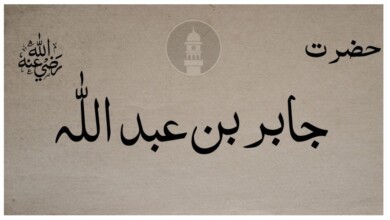Mukhayriq ibn al-Nadir: The Jewish Rabbi martyred for Islam
Before the arrival of Islam in Yath-rib (renamed Madinah), the Banu Tha’laba were among the Jewish tribes that were resident in the city. They were known for their scholarship, particularly in matters of scripture and prophecy. Among the Banu Tha’laba was Mukhayriq ibn al-Nadir, a wealthy, learned and well-respected rabbi (Jewish schol-ar).
When Prophet Muhammad (peace be upon him) migrated to Madi-nah in 622 CE (the Hijrah), he es-tablished the Constitution of Ma-dinah—an agreement that aimed to ensure peaceful coexistence among the city’s diverse communi-ties, including Jews, Muslims, and pagan Arabs. While some Jewish tribes maintained cordial relations with the Prophet, others grew wary of his rising influence.
However, Mukhayriq was different. He studied Muhammad’s message closely and came to believe that the Prophet was indeed the fulfillment of the prophecies found in Jewish scriptures.
Despite recognising the truth of Mu-hammad’s prophethood, Mukhay-riq did not convert to Islam in the formal sense. Instead, he chose to support the Prophet (PBUH) in word and deed, even when that meant clashing with his own tribe. The real test of his allegiance came in 625 CE, during the Battle of Uhud.
The Quraysh of Makkah, seeking revenge for their defeat at Badr, marched toward Madinah with a large army. Prophet Muhammad (PBUH) called on the people of Ma-dinah to defend the city. While the Muslims prepared for battle, Mukhayriq made a momentous de-cision. It was a Saturday—the Jewish Sabbath—and warfare was generally prohibited on that day in Jewish law. His tribesmen refused to fight, citing religious re-strictions.
But Mukhayriq told them: “You have no Sabbath!” He accused them of misinterpreting the scriptures and failing to uphold their moral duty. He recognized that this was not merely a political con-flict but a battle between truth and falsehood. Armed and determined, he joined the ranks of the Muslims heading into battle. He announced to his people that if he died in the battle, his entire wealth (seven gar-dens and other forms of wealth) should go to Prophet Muhammad (PBUH) for the welfare of the Mus-lim community.
The Battle of Uhud was fierce and chaotic. Unlike the earlier Battle of Badr, this time the Muslims faced a significant setback due to strategic errors and a surprise coun-terattack by the Quraysh.
Among the many who fought val-iantly that day was Mukhayriq. He was killed in battle, making him one of the first Jewish martyrs for the cause of Islam, even though he never formally embraced the religion.
Prophet Muhammad (PBUH) was deeply moved when he learned of Mukhayriq’s death. He praised him and referred to him as “the best of the Jews.” What made his sacri-fice even more remarkable was when he willed his (Mukhayriq) wealth be given to Prophet Muham-mad (PBUH). The Prophet (PBUH) used this wealth to establish the first waqf – a charitable endowment – of Islam. It was from this endowment that the Prophet of Islam helped many poor people in Madinah, and as well and laid the foundation for public wel-fare in the Muslim community.


